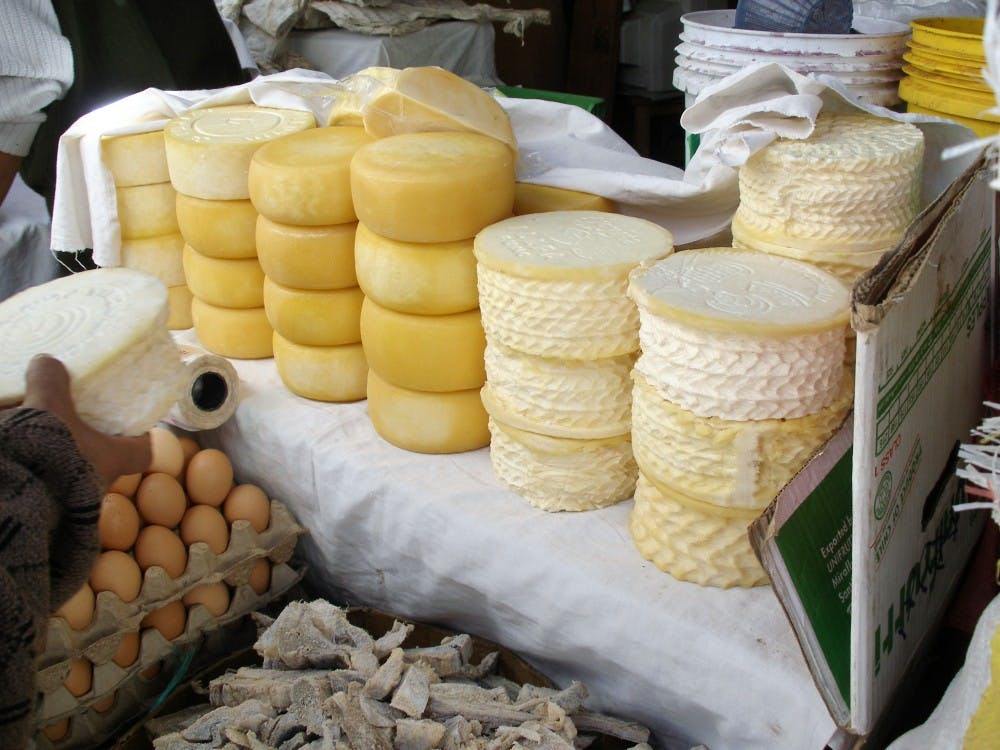By ELIZABETH LIU Senior Staff Writer
By now, you’ve probably heard of the study suggesting that cheese may have an addicting effect on people. Headlines and news articles have joked about cheese addiction, but the real science is much more complex.
The viral study, performed by researchers from the University of Michigan in collaboration with the New York Obesity Research Center, was published this February in PLOS One. The researchers recruited 120 University of Michigan undergraduates and 384 people from Amazon’s Mechanical Turk program to participate in the study.
Each participant completed the Yale Food Addiction Scale, a survey designed to identify signs of addictive behavior toward food. This survey uses criteria similar to those that determine drug addiction. Its questions include ranking how often the participant overeats, whether they have previously attempted to quit overeating certain foods but failed, and whether they have given up social activities in order to consume a certain food.
In the first part of the study, the participants were given two food options out of 35, and they had to choose which food they were more likely to crave or binge eat. Options included processed and junk foods like soda, cake and pizza, as well as healthy and natural foods like fruits, water and vegetables.
In the second part of the experiment, participants in the Mechanical Turk group were given the same 35 food options and asked to rank how likely they would be to crave or binge on each option based on a seven-point scale, with seven being the most likely/extremely problematic and one being unlikely/not problematic.
The most highly chosen and ranked foods — the ones that people were most likely to binge on and crave — tended to be highly processed. Chocolate, pizza, chips, French fries and buttered popcorn held the top ten spots on the researchers’ scale.
Food options that were low in carbohydrates, such as nuts and eggs, as well as those low in fat, such as fruits, were consistently ranked low. These findings suggest that, while people may still enjoy eating foods like apples and nuts, natural foods do not pose as much of an issue regarding addictive behaviors as do processed foods. In other words, people do not tend to develop cravings for naturally occurring foods, even if they enjoy eating such foods.
Since processed foods have a high glycemic load and are high in carbohydrates, salt and fat, they are quickly absorbed by the body, leading to a fast spike in blood sugar. The researchers speculate that this could have an addicting effect that could lead to addictive behaviors.
The researchers noted that, while two foods with cheese (pizza and cheeseburgers) ranked in the top 10, cheese itself was ranked at around 16, so cheese on its own does not seem to be a big problem.
Nevertheless some have compared cheese to cocaine based on the role of casomorphins, small protein fragments found in dairy products. They are created as a result of breaking down casein, a protein found in milk. Previous studies have found that casomorphins can bind to receptors for opiate-like molecules such as morphine and cocaine.
However just because casomorphin activates the opioid system does not mean that it is addictive. A 2009 report from the European Food Safety Authority states that it is unknown whether or not large amounts of casomorphin can escape the gastrointestinal tract of the digestive system, let alone reach the brain. Rat and mouse studies have suggested that the peptide does not show any addictive effects, while other animal studies have estimated that, whether or not casomorphin is actually addictive, it is at least 20 times less potent than morphine.
For now at least, there is no significant proof that cheese is addictive. The researchers are still hopeful that the study will make people more aware of their eating habits and that knowing what we eat and why we are eating (or why we can’t stop eating) certain foods can be a good first step toward adopting healthier eating habits.





